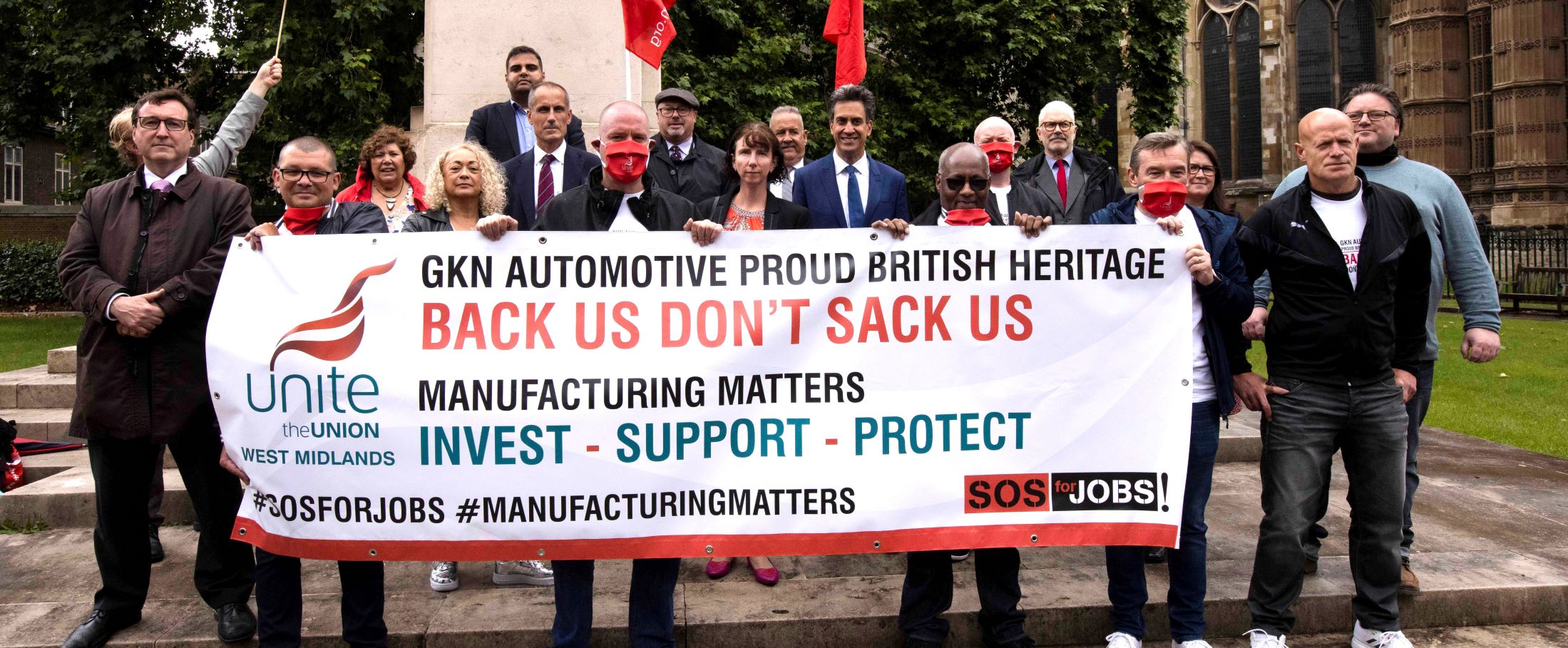Where another world is possible
It’s not very often that a suit and tie from management speaks of his indebtedness to the union.
But that’s exactly what happened when in October Rolls-Royce celebrated the contribution of three trade union negotiators, Charlie Hunt, Eric Lancashire and Mick Walker, who in 1971, helped save the company from the brink of failure.
At the time, Rolls-Royce had overspent in trying to bring a new jet engine to market. It went into receivership – with virtually no hope in sight, the end was near.
But the negotiators of Unite’s predecessor unions took their case to Parliament, with thousands of union members joining them to lobby their MPs.
The trade unionists worked with management to press the government to nationalise the company. And in the meantime, workers agreed to continue production, though their future – even the payment of their wages – was uncertain.
The campaign was a success – Rolls-Royce was nationalised and saved. “We’re better when we work together,” said Mike Moseley, head of operations at Rolls Royce in Derby as he paid tribute to the trade unionists who helped save the company.
Unite assistant general secretary Tony Burke agreed. “Only by working together can you save jobs and create successful companies,” he said.
Rolls-Royce stands proud to this day – it’s still the largest private sector employer in the Derby area, employing about 12,000 people, and that ethos of management working together with the trade union remains.
Is it any coincidence, then, that a workplace where unions are seen as partners is also a workplace where wages are high, workers are highly skilled and people are treated with respect?
Of course, trade unions and management don’t always see eye-to-eye, even when relations are good.
Unite staff convenor Simon Hemmings explained how Unite responded to a proposed change in pensions recently by balloting 600 of its members in one area of the business.
The other 10,000 union members across the company agreed to support the striking workers by paying extra towards a strike fund so that workers would lose none of their wages. The ballot came back with 98 per cent supporting the strike.
Rolls-Royce responded by immediately engaging in negotiations and in the end Unite secured an improved pensions deal for all workers.
Likewise, in the spirit of dialogue, Unite convinced Rolls-Royce to back down on plans to shut a manufacturing facility after putting in its own proposals for more investment. The union negotiated and Rolls-Royce listened.
Result
The result was a better agreement than anyone could have imagined – not only did Rolls-Royce reverse its decision to close the facility, but the company committed to building a £150m new test bed facility as well as further investment at its sites in Hucknall and Derby. What’s more, it pledged an unprecedented five years of job security for all workers.
“This is the first time I’ve ever heard of in the UK when a company said it would be closing something down, and the union put forward their own proposals and the company actually acted on our suggestions,” Hemmings explained.
“There’s a recognition that we need each other – that the company can’t be successful without the employees and the employees can’t be successful without the company.”
Talking to workers at the sprawling Rolls-Royce site in Derby – an island of buzzing industry unto itself – you’d never guess that it’s part of the wider UK labour market, where so many jobs are low-paid and insecure, where the fear of bosses is palpable and the prospect of not being able to make ends meet is real.
Robert Bell, a Rolls-Royce engineer and Unite rep, is as far removed from the typical job insecurity of so many Britons today as you can be – at the age of 25 he owns his own home.
“I don’t have any student loan debt either,” he explains. Bell started as an apprentice, and was paid to learn on the job while earning his degree. “I enjoy a great deal of job security, the wages are very good and there’s a level of respect you don’t often find anywhere else,” he notes.
“My partner was recently diagnosed with multiple sclerosis which made me sort of step back and realise what’s important in life. And working here I’m able to do that, to spend time with my loved ones because they give you lots of flexibility. There’s never this pressure to work till you drop.”
Bell says he’s experienced personally the difference the union has made – the company was forcing through changes that would see final apprenticeship salaries drop by £10,000. “But the union stepped in and said no this isn’t fair – and the company backed down.”
John Pepper, a Unite shop steward, will have been working for Rolls-Royce for 50 years next year – and like Bell, started as an apprentice.
“They’ve always been good to people here,” he says. “They work with people and work with the unions. They’ve mostly tried to avoid compulsory redundancies. They’ve given us the opportunity to get training in other areas if we wanted to do different things.”
Pride
Pepper speaks of a pride in the work and the company that still persists to this day. “In my time it wasn’t about going to university – it was all about apprenticeships and Rolls-Royce was synonymous opportunity. The company was and still is well-respected.
“And of course we believe with the skills that we have here that we can make the products better than anybody else in the world,” Pepper added.
It is this pride that emanates throughout the Rolls-Royce factory – from the shop floor where the world’s most high-tech jet engines are manufactured to the union conference rooms, where management and workers gathered to honour the role trade unions have played in support of the company – that shows another world of work is possible.
This feature first appeared in Unite’s members magazine uniteWORKS. You can read the latest edition on the Unite website here. Or as a Unite member you can receive a print or digital copy by changing your membership records through My Unite or by contacting your local regional office regional membership admin team.
 Like
Like Follow
Follow

